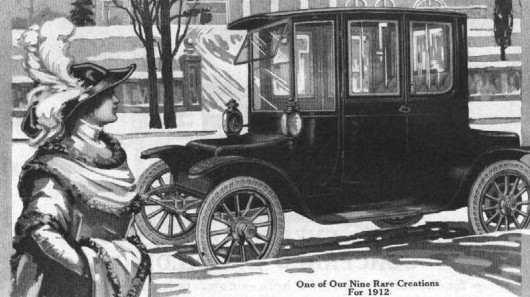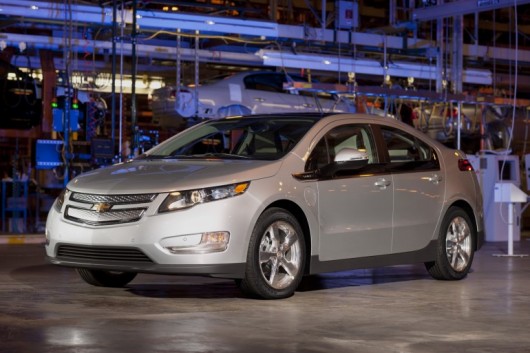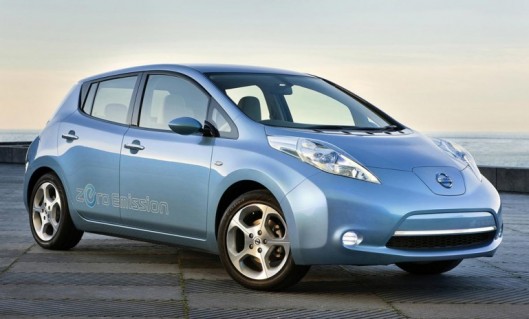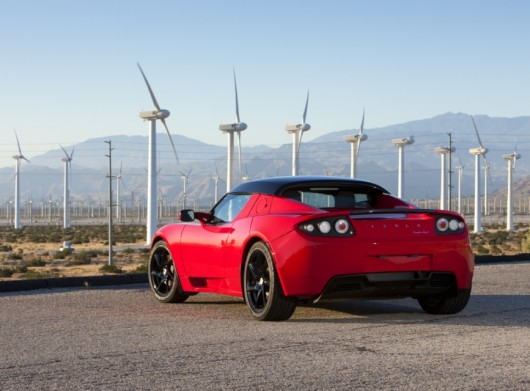
A 1912 advertisement for the Detroit Electric
Almost every day, we hear about advances in the development of practical electric cars. Those advances won’t mean much, however, if no one is buying the things. With that in mind, ZPryme Research and Consulting recently conducted a web-based survey of 1,046 men and women across the U.S., asking how they felt about various aspects of buying an EV (electric vehicle).
First of all, only 8.5 percent of respondents said they were very likely to buy an EV within the next two years, although 28.7 percent considered themselves somewhat likely. Of the remaining somewhat or very unlikely respondents, 25.8 percent said they were somewhat likely to buy an EV in the next five years.
Why get one?
The top reason for buying an EV would be the price of the vehicle, according to 66.8 percent of those surveyed, with fuel savings coming in as the number two reason, at 50.4 percent. Although it was not cited as a reason for buying an EV, 64.1 percent of respondents who were very or somewhat likely to purchase within the next two years said that environmental concerns were very important to them. Of those that were very or somewhat unlikely to buy, only 32.4 percent were very concerned about the environment.
Of all the people surveyed, 31.1 percent said they would be willing to pay more for for an EV than for a conventional vehicle, with 12.6 percent saying that they would pay up to $5,000 more, and 5.2 percent stating they would pay $10,000 more.
Range and charging time
Within the very to somewhat likely within two to five years group, 33.7 percent said that 400 miles (644 km) would be a sufficient range, while 33.3 percent were willing to settle for 300 miles (483 km). When it came to acceptable charge times, 32.1 percent indicated 4 hours, 18.1 percent indicated 6 hours, and 20.0 percent would wait for 8. If it were possible to pay a premium to charge their cars faster, 87.4 percent said they would opt for it. The ability to charge one’s EV at home is also a big deal, with 93.2 percent describing it as very important.
What they would buy
As far as makes and models goes... well, people aren’t going to buy a car if they aren’t aware of its existence. When asked which EVs they had heard of, respondents listed the Chevrolet Volt (53.1 percent), Ford Focus EV (49.1 percent), Nissan Leaf (30.8 percent) and Tesla Roadster (16.8 percent) – brands such as BYD and ZAP sat somewhere under 5 percent. When it came to which automaker those surveyed would like to buy an EV from, five brands stood out: Ford (17.8 percent), Toyota (16.7 percent), Chevrolet (16.0 percent), Honda (12.6 percent) and Nissan (7.1 percent).
Regional differences
While there were no strong differences in how receptive people in different geographical quadrants were to EVs, the western states were the most welcoming, with 40.1 percent of respondents categorizing themselves as likely to buy an EV. The south and northeast U.S. came in next at 37.3 and 37 percent, respectively, with the midwest coming in lowest at 35.3 percent.
What needs to be done
At the end of its 71-page report on the results of the survey, ZPryme makes some predictions on what will need to happen in order for EVs to become widely accepted. For one thing, it suggests, the vehicles should be integrated with the Internet, wireless networks, telematics, and users’ smartphones. The "likely" group is apparently a techie bunch, and would be more interested in vehicles that take full advantage of current technologies.
A Smart Grid that manages municipal power systems will also be essential, in order to avoid blown transformers and black-outs due to overloads from all those charging batteries. Likewise, a charging infrastructure will need to be put in place, allowing users plenty of opportunities to recharge in the field, but also at home. That charging also needs to be required less often, with the development of low-cost batteries that can go 250 to 350 miles (402 to 563 km) on one charge. The lower-cost batteries should help bring the total price of an EV down to that of a conventional vehicle, which is another challenge that reportedly must be met.
Finally, and not surprisingly, Zpryme suggests that “Consumer education is at the heart of EV adoption.” Regardless of what advances are made in EV connectivity, range, convenience and price, consumers still won’t purchase electric cars if they’re holding onto their old misconceptions.
Copyright © gizmag 2003 - 2010 To subscribe or visit go to: http://www.gizmag.com



